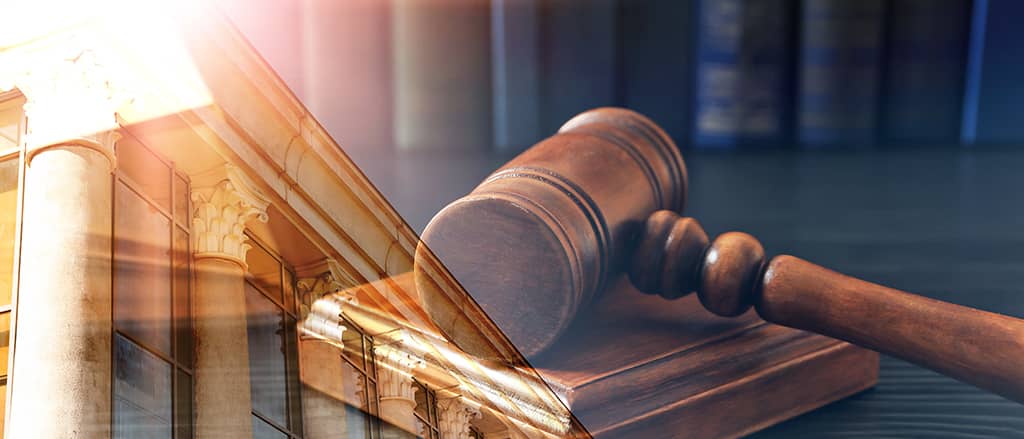Understanding the Criminal Justice Process in Nevada

The criminal justice process in Nevada, as in other U.S. states, is intended to protect the rights of the accused person (the defendant) and the victim of the crime. It is a formal process that involves law enforcement agencies, prosecutors, defense attorneys, judges, and corrections officials.
The overall criminal justice system consists of three main components:
- Law enforcement – police, sheriffs, marshals, and federal agents investigating crimes and arresting suspects.
- Courts – local, state, and federal courts that determine whether suspects should be charged with crimes, conduct trials, impose sentences on those found guilty, and determine appropriate punishments.
- Corrections – jails, prisons, probation and parole officers who maintain custody of and supervise convicted criminals.
Understanding how this system works is important for all citizens to fully participate in the democratic process and help shape criminal justice policies.
The Criminal Justice Process
Once a crime is committed, a complex criminal justice process begins to determine guilt and assign appropriate punishment.
The criminal process typically follows this order:
- Investigation and arrest
- Pretrial proceedings (initial appearance, bail hearing, grand jury hearing)
- Arraignment
- Motions and plea bargaining
- Trial
- Sentencing
- Post-conviction proceedings (appeals, probation, parole)
While this provides a broad overview, understanding the details of each step is crucial for anyone involved in a federal criminal case.
1. Investigation
The first step is the investigation of a potential crime. Law enforcement officers will investigate leads, collect physical evidence, interview witnesses and victims, and attempt to identify suspects.
If their investigation provides probable cause to believe a person has committed a crime, the officers can obtain an arrest warrant from a judge or prosecutor, allowing them to make an arrest.
2. Arrest
Once sufficient evidence is gathered, law enforcement officers can arrest the suspect (the person believed to have committed the crime). The arrestee is searched and booked into jail.
In some cases, the police may arrest a suspect without a warrant if they directly observe a crime or have probable cause to believe the person committed a felony.
3. Initial Appearance
After arrest, the defendant is brought before a judge or magistrate for an initial appearance within 48 hours. At this hearing:
- The charges are reviewed.
- Bail is set or the defendant is released.
- A criminal defense lawyer is appointed if the defendant cannot afford one.
- The defendant enters a plea of guilty, not guilty, or no contest.
This initial appearance ensures the defendant’s right to be promptly informed of the charges and to have bail set.
4. Arraignment
The next step is the arraignment, which must take place within 15 days of the arrest in Nevada. This hearing involves:
- The formal reading of the criminal charges.
- Entering a plea before the court. The defendant will plead “guilty,” “not guilty,” or “no contest.”
- Setting dates for the pretrial conference and trial.
Arraignments provide official notice to the defendant of the charges against them.
5. Pretrial Process
Now the pretrial process begins. The prosecutor and defense attorney exchange information through the discovery process and negotiate possible plea bargains.
The defense may file pretrial motions to challenge evidence collection, request dismissal of charges, or raise other issues. Pretrial services may also investigate the defendant’s background and criminal history.
This pretrial phase aims to resolve the case through negotiated plea agreements or prepare for trial.
6. Plea Bargaining
Oftentimes criminal cases can end through plea bargaining, an agreement where the defendant pleads guilty to a lesser offense in exchange for a more lenient sentence. This helps resolve cases efficiently and avoid lengthy trials.
The judge must approve plea bargains. Reasons a defendant may agree to a plea bargain include:
- Avoiding the risk of conviction at trial.
- Reducing the sentence length.
- Dropping more serious charges.
If no plea bargain is reached, the case heads to trial.
7. Criminal Trial
The criminal trial determines the guilt or innocence of the defendant based on the evidence presented. There are two types of criminal trials:
- Bench Trial: A judge hears the evidence and renders the verdict. No jury is involved.
- Jury Trial: The defendant’s guilt or innocence is determined by a panel of citizens called jurors. This is a right of defendants charged with serious crimes.
During the trial, lawyers present evidence and question witnesses. The defendant may choose to remain silent. In the end, the verdict is rendered.
8. Sentencing
If the defendant is found guilty, the judge will impose a sentence based on the laws and sentencing guidelines. Some factors affecting sentencing include:
- Mandatory minimum or maximum sentences.
- Prior criminal history.
- The severity of the crime.
- Impact on victims.
- Sentencing guidelines.
Sentences aim to punish criminal behavior, rehabilitate offenders, and keep the public safe. Probation may be granted for less serious crimes.
9. Appeals
After sentencing, the defendant can appeal the conviction and sentence. Grounds for appeals include procedural errors, misconduct, and constitutional violations.
Appeals are first heard by the state appeals court and may go up to the state Supreme Court. Federal courts hear federal appeals. Appeals may result in overturned convictions, reduced sentences, or new trials.
10. Corrections
The Department of Corrections administers the prison sentence of convicted defendants through:
- Jails – short term, typically under 1 year.
- Prisons – long term, generally 1+ years.
Those on probation or parole remain under community supervision. The corrections system aims to both punish and rehabilitate criminal offenders after sentencing.
Don’t go through the criminal justice process alone.
The process of being charged with a crime in Nevada can be complicated and scary. From the moment you’re investigated to the final steps of a trial or an appeal, there are a lot of things that can go wrong if you don’t know what you’re doing. That’s why it’s really important to have someone who understands the law to guide you.
If you’re facing criminal charges, it’s not something you should handle on your own. Durham Law Firm in Las Vegas specializes in helping people like you at every stage of this complex process. With a skilled defense lawyer on your side, you have a much better chance of protecting your rights and getting the best possible outcome. Contact us for a free case evaluation to discuss your options.
Frequently Asked Questions:
What is a criminal prosecution?
A criminal prosecution refers to the legal proceedings initiated by the state or federal government against an individual or organization blamed for committing a crime. The prosecution is tasked with proving guilt and securing a conviction in court.
When can information shared during an investigation become public?
Details of a criminal investigation generally remain confidential until charges are filed, and the investigation becomes a matter of public record. However, prosecutors and law enforcement have discretion over when to share sensitive information during an ongoing investigation with victims and witnesses.
